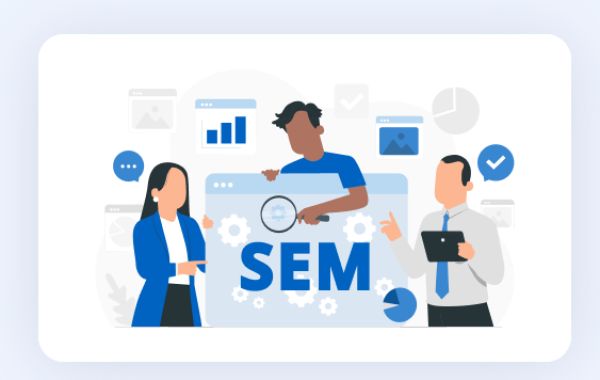In today's digital age, a strong online presence is crucial for the success of startups. Search engine marketing (SEM) plays a pivotal role in helping startups gain visibility, attract potential customers, and grow their businesses. In this article, we'll dive deep into the world of SEM for startups, providing you with valuable insights, strategies, and tips to make your online journey a success.
Understanding Search Engine Marketing
What is SEM, and Why Does It Matter for Startups?
Search Engine Marketing, commonly known as SEM, encompasses various strategies aimed at enhancing a website's visibility on search engines like Google and Bing. For startups, SEM is a game-changer, as it allows you to reach your target audience effectively. By investing in SEM, you can drive organic and paid traffic to your website, ultimately leading to increased brand awareness and revenue.
The Power of Keywords in SEM
Keywords are the backbone of SEM. Startups must conduct thorough keyword research to identify phrases and terms relevant to their niche. These keywords should be seamlessly integrated into website content, ensuring that your site ranks higher on search engine results pages (SERPs).
Crafting a Winning SEM Strategy
On-Page SEO: Your Website's Foundation
Your website is your digital storefront. Optimizing it for search engines is crucial. Implement on-page SEO techniques such as meta tags, header tags, and keyword-rich content to improve your site's search engine ranking. A user-friendly website with quick loading times is more likely to retain visitors and convert them into customers.
Off-Page SEO: Building Authority and Trust
Off-page SEO involves activities outside your website, such as backlink building and social media marketing. Startups should focus on building quality backlinks from reputable websites to establish authority and trust in the eyes of search engines. Engaging in social media marketing can also boost your online presence.
Paid Advertising with Google Ads
Google Ads, a paid advertising platform, offers startups an opportunity to promote their products or services on Google's search results pages. By creating compelling ad campaigns and targeting specific keywords, startups can quickly reach potential customers.
Content Marketing: Quality Over Quantity
Content is king in the digital world. Creating high-quality, informative, and engaging content not only attracts visitors but also positions your startup as an industry expert. Develop a content calendar and consistently produce valuable content to keep your audience coming back for more.
FAQs about SEM for Startups
Q: How long does it take to see results from SEM efforts? A: SEM results can vary, but startups can expect to see improvements in their online visibility within a few weeks to a few months. Patience is key, as it takes time to build authority and trust with search engines.
Q: Are there any free tools for keyword research? A: Yes, tools like Google Keyword Planner and Ubersuggest offer free options for keyword research. These tools can help startups identify relevant keywords for their niche.
Q: Is it essential to hire an SEM agency for startups? A: While startups can manage SEM on their own, working with an SEM agency can provide valuable expertise and save time. It's a decision based on your budget and resources.
Q: How can I measure the success of my SEM campaigns? A: Key performance indicators (KPIs) like click-through rates (CTR), conversion rates, and return on investment (ROI) can help startups gauge the success of their SEM campaigns.
Q: What are long-tail keywords, and why are they important? A: Long-tail keywords are specific and longer phrases that target a niche audience. They are essential for startups as they can result in higher conversion rates since they attract users with clear intent.
Q: Is SEM suitable for all types of startups? A: SEM can benefit most startups, but its effectiveness depends on the industry and competition. Conduct thorough research to determine if SEM aligns with your business goals.
Conclusion
Search engine marketing for startups is a dynamic and ever-evolving field. By implementing the strategies outlined in this guide, you can enhance your online presence, attract potential customers, and pave the way for your startup's success. Remember, SEM is an ongoing process, so stay updated with industry trends and adapt your strategies accordingly.








